There are sparks when you place the mundane with the insane. The common and the crazy sometimes create something profound.
My entire experience of the David Gareja Monastery in Georgia felt like this: the simple with the spectacular, the unexpected juxtapositions of disparate scenes.
The four of us—Amiran from Georgia, Luca from Italy, our jovial Georgian driver, and myself—watched from the car windows as Tbilisi melted away into rolling plains, and eventually into arid mountain desert.
Two hours passed quickly and before long our driver deposited us at the base of the complex, and we began the long, hot climb up and over the David Gareja Monastery complex.
The interesting juxtapositions began immediately. Distinctly human buildings lurch out into the empty desert and the contrast is jarring. The main part of the complex is perched quietly above the streaky, rippling landscape; habitation in such a seemingly inhospitable place is striking.
We climbed higher and higher, closer to the sun, closer to the border. As we peaked and began a slight descent over the other side of the mountain, my phone dinged.
It was an automated message: we were officially in Azerbaijan.
On the side of a mountain.
With barely any discernible path.
The sprawling desert far below our feet radiated palpable quiet.
I don’t love heights, especially on precarious mountainsides with barely any walkway, much less railings. As we inched along, I couldn’t help but wonder begrudgingly what I was even doing up here. Why was I pretending to be a mountain goat under this hot desert sun?
And then we turned a tight corner into a dim cave and found the angels.
Another juxtaposition: the sacred and the simple. These caves that just barely cross into Azerbaijan contain exuberant holy frescoes that somehow have maintained their vibrant colors over the last 800 years. What a beautiful whiplash, to go from a barely-defined tourist path to sharply rendered ancient paintings. Few people expect to find a cool and colorful cave cut into the side of a mountain. I knew that we would see frescoes and yet even I found the sudden rush of art surprising.
There are quite a few of these frescoes hidden along the path, each more exquisite than the last. Most of the caves were rather accessible, but at least a couple of them involved clambering up some rocks. I didn’t look down—it was much easier to forget the desert below if I focused on the caves above.
It was worth the precariousness. The wild color-drenched holy paintings tucked into barely scalable rock caves positively radiated. Some of the walls were defaced with scratchmark graffiti, but I found that the proximity of the sacred and the profane made me appreciate the resilience of the pictures even more. I felt overwhelmed by the frescoes, in the best possible way.
Eventually, we worked our way down off the mountain and into our waiting car, but the contrasts weren’t over. We drove through a town that seemed completely decimated: hollowed-out buildings, herds of cows and the occasional old Georgian man along the side of the road, but otherwise nothing… until we stopped at a really adorable Polish café. The quaintness and NORMALNESS of the place was so jarring, in the middle of such emptiness.
And after fortifying ourselves with midday beer, we stopped again per my request, because we were driving past a giant sunflower field.
The boys wandered off and I was left by myself, which means that I was completely free to run like a maniac through the shining sunflowers.
As I ran through the sunflower field, there was yet another fortuitous juxtaposition—a Zero 7 song started playing from our car, and the ethereal music drifted over as the yellow sunflower stalks surrounded me. Angels in the caves, music in the fields—Man, I tell you, I swear I saw heaven.
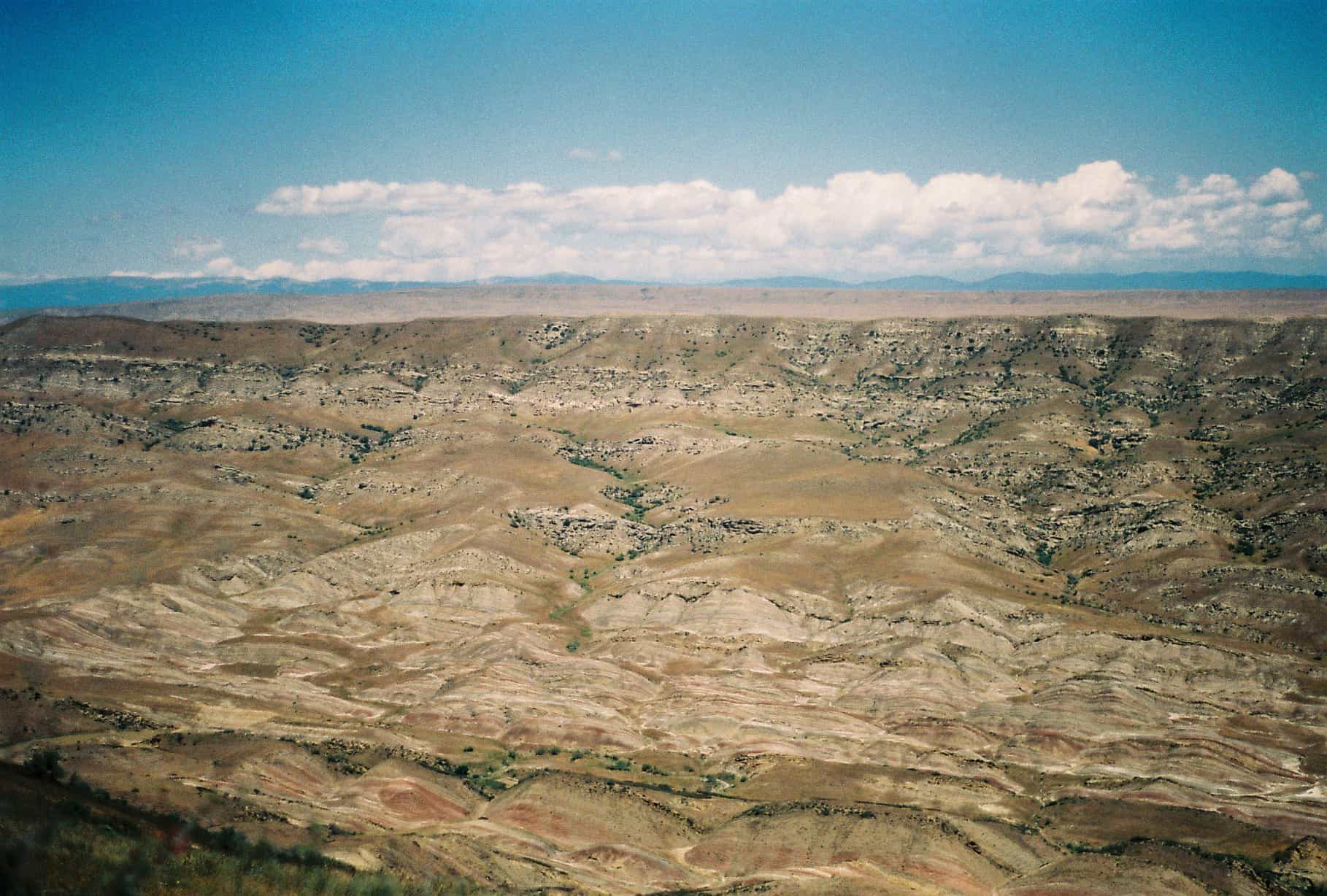



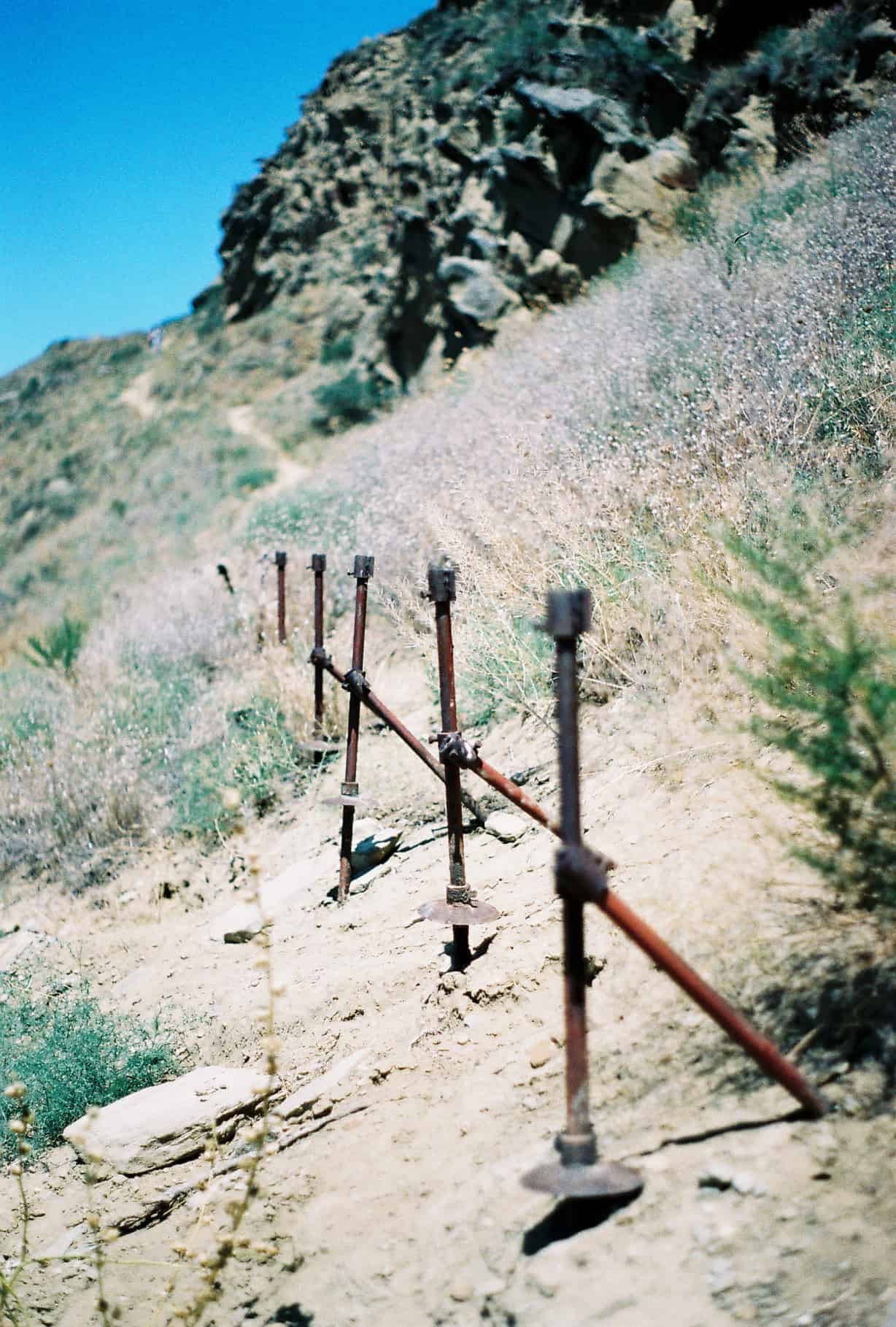

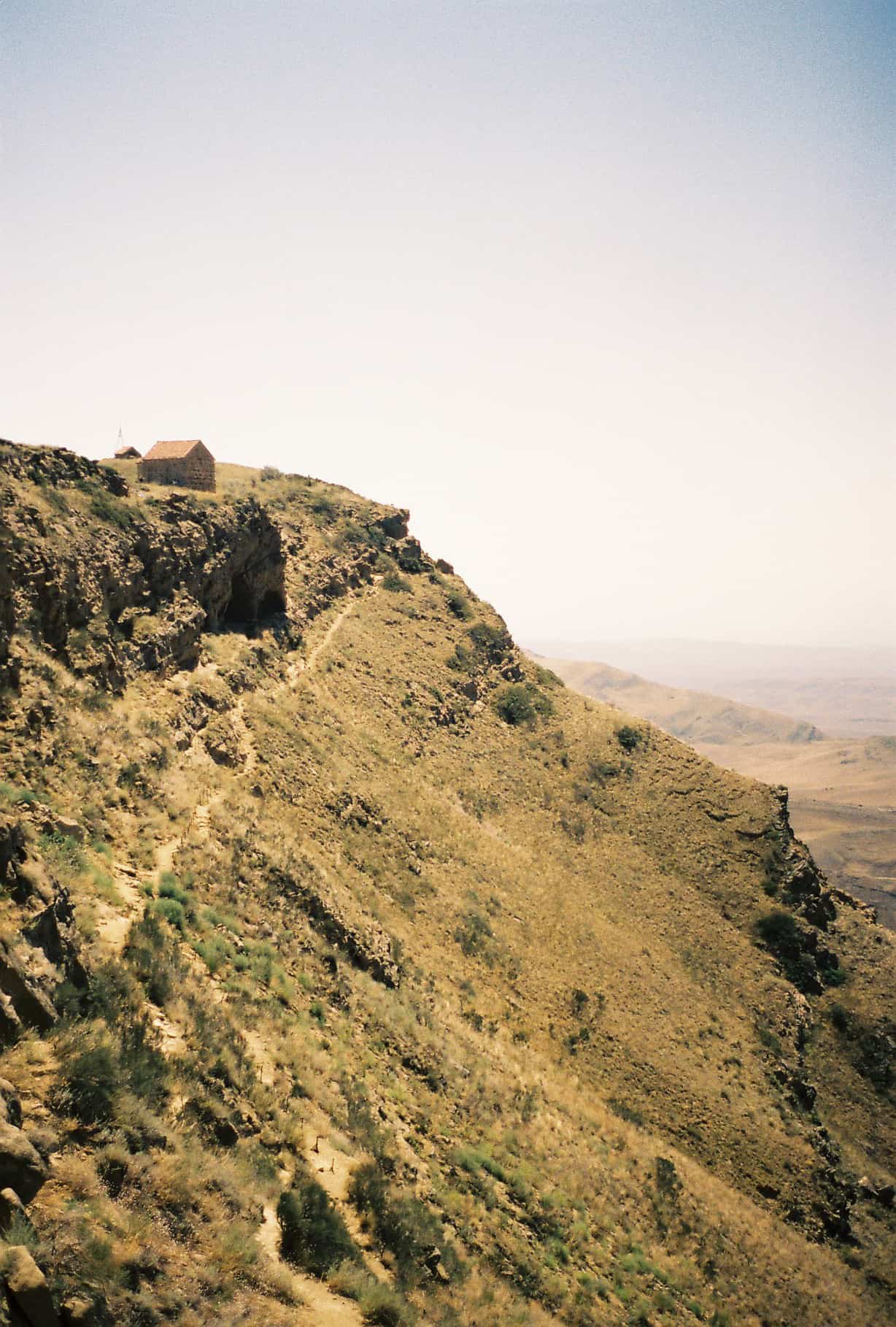
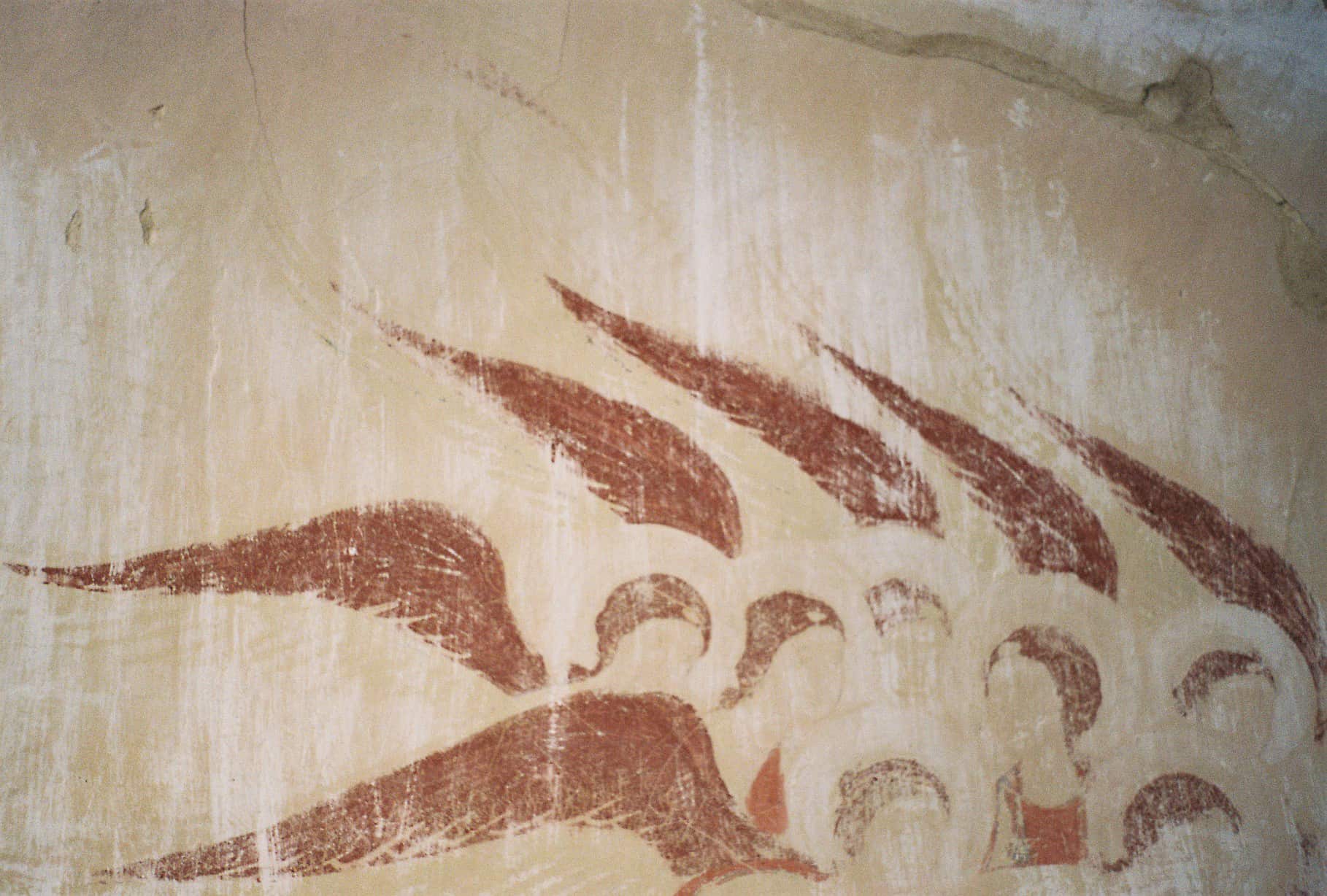
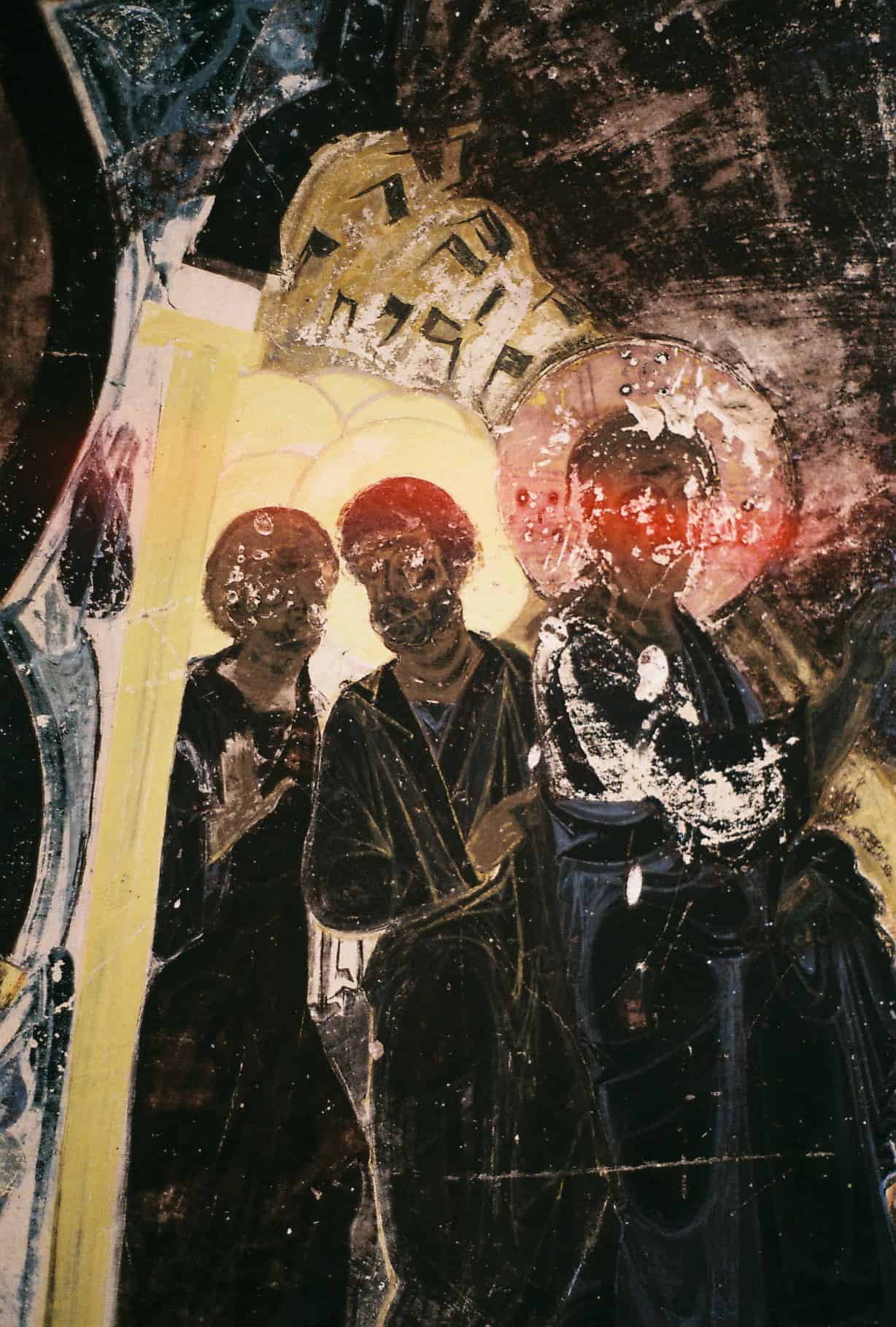

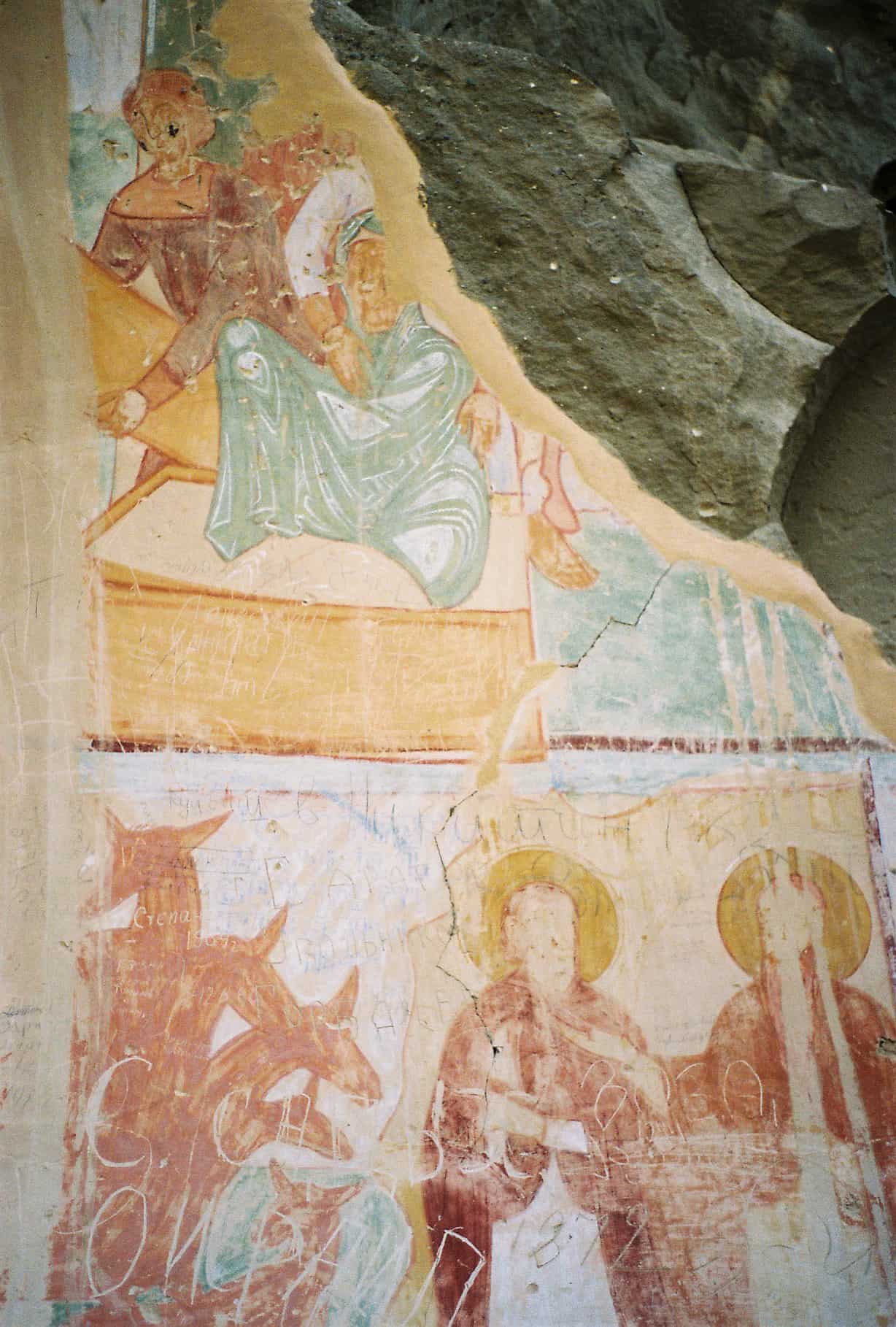
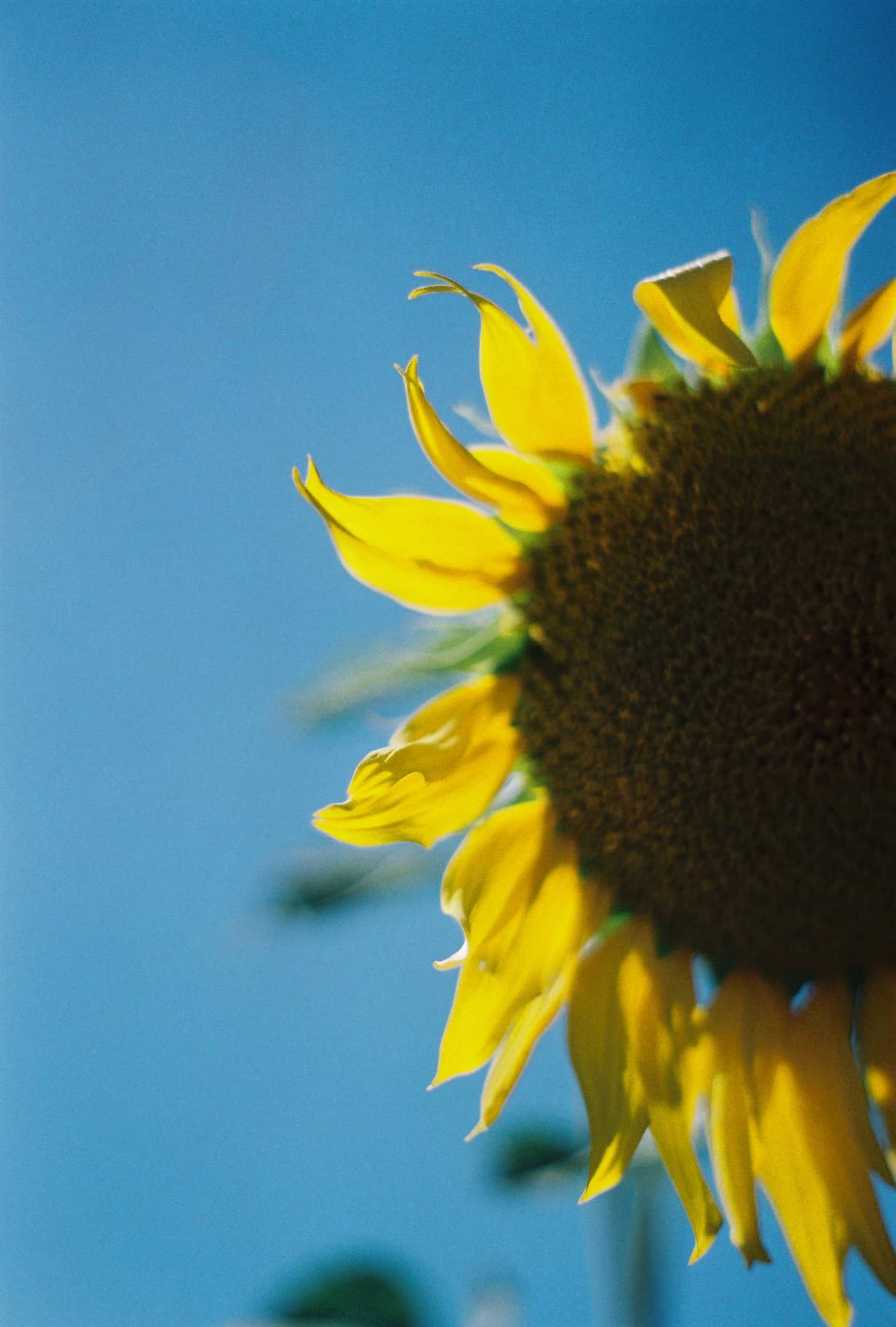


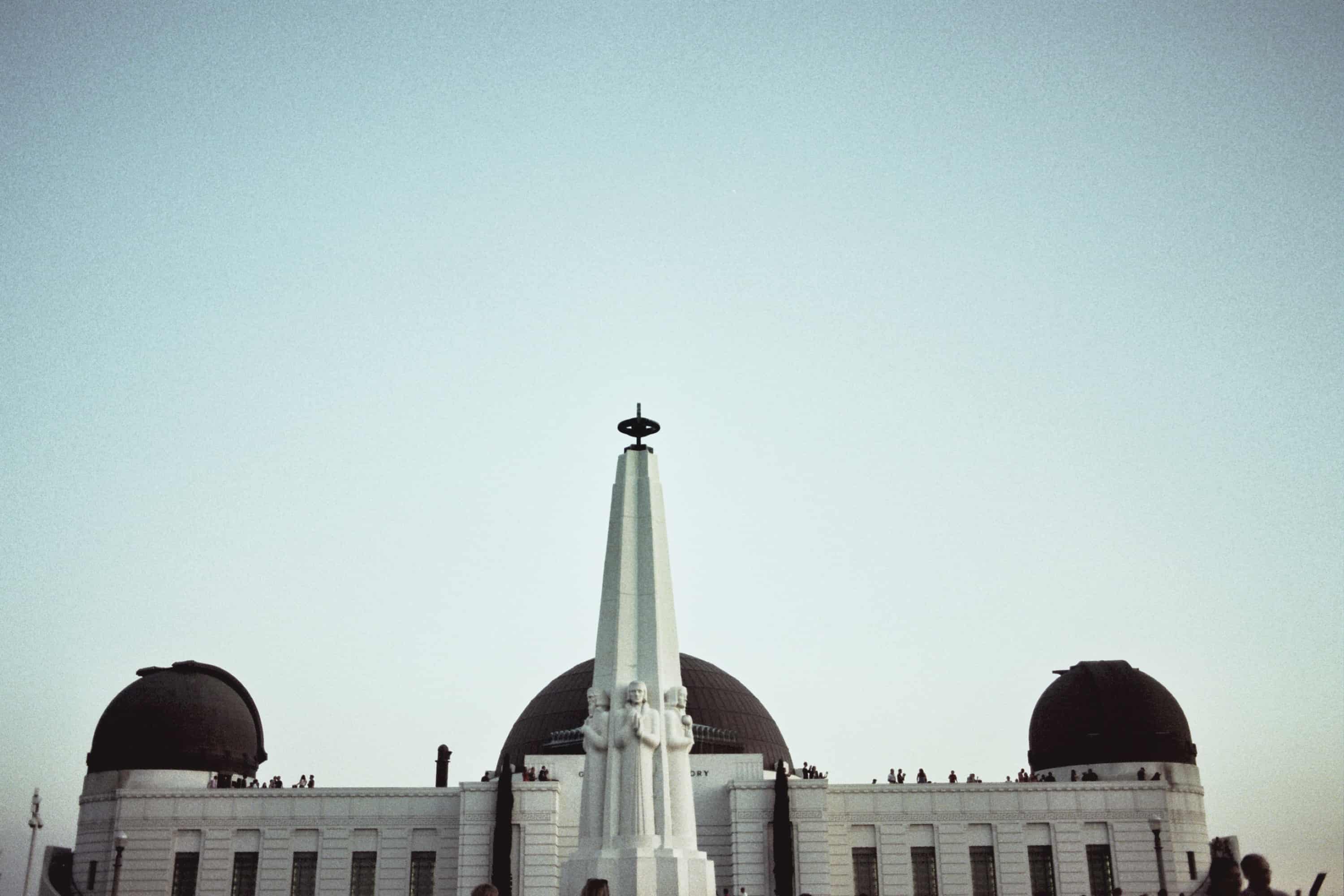
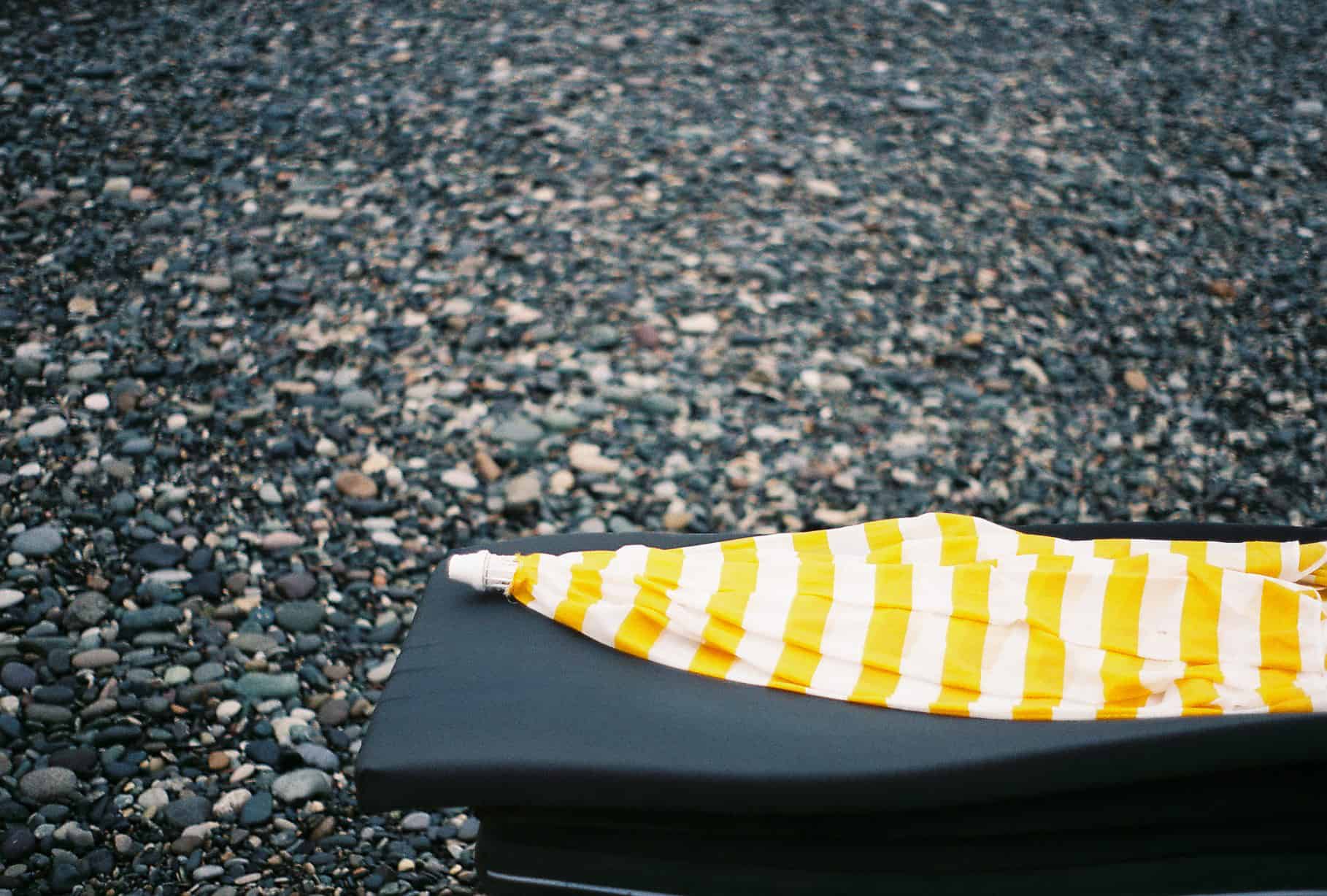
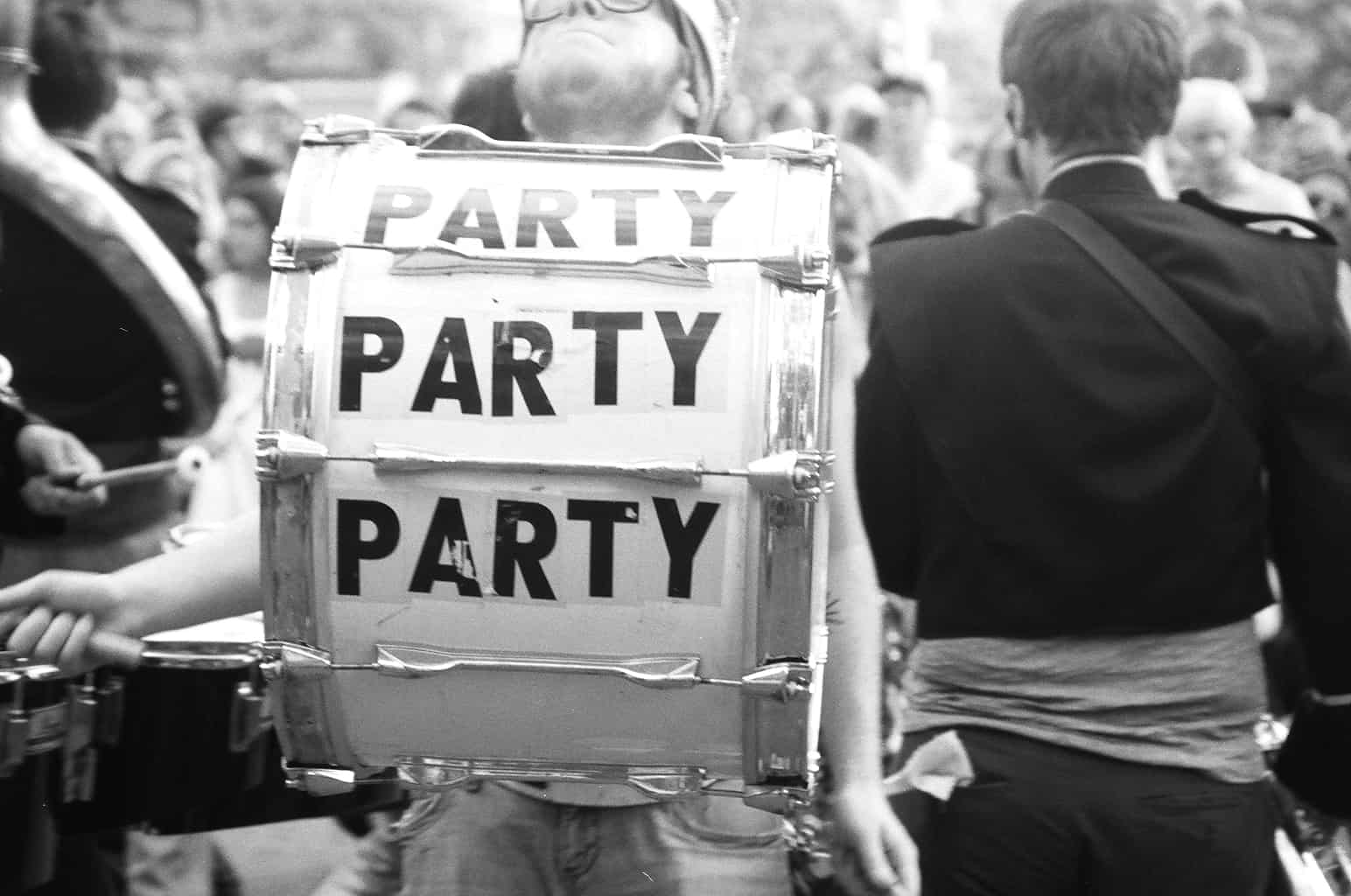
2 Comments
Mary Deery
September 20, 2013 at 12:44 AMI was with you! Lovely posting.
Katrinka
September 24, 2013 at 10:49 PMThank you, Mary!